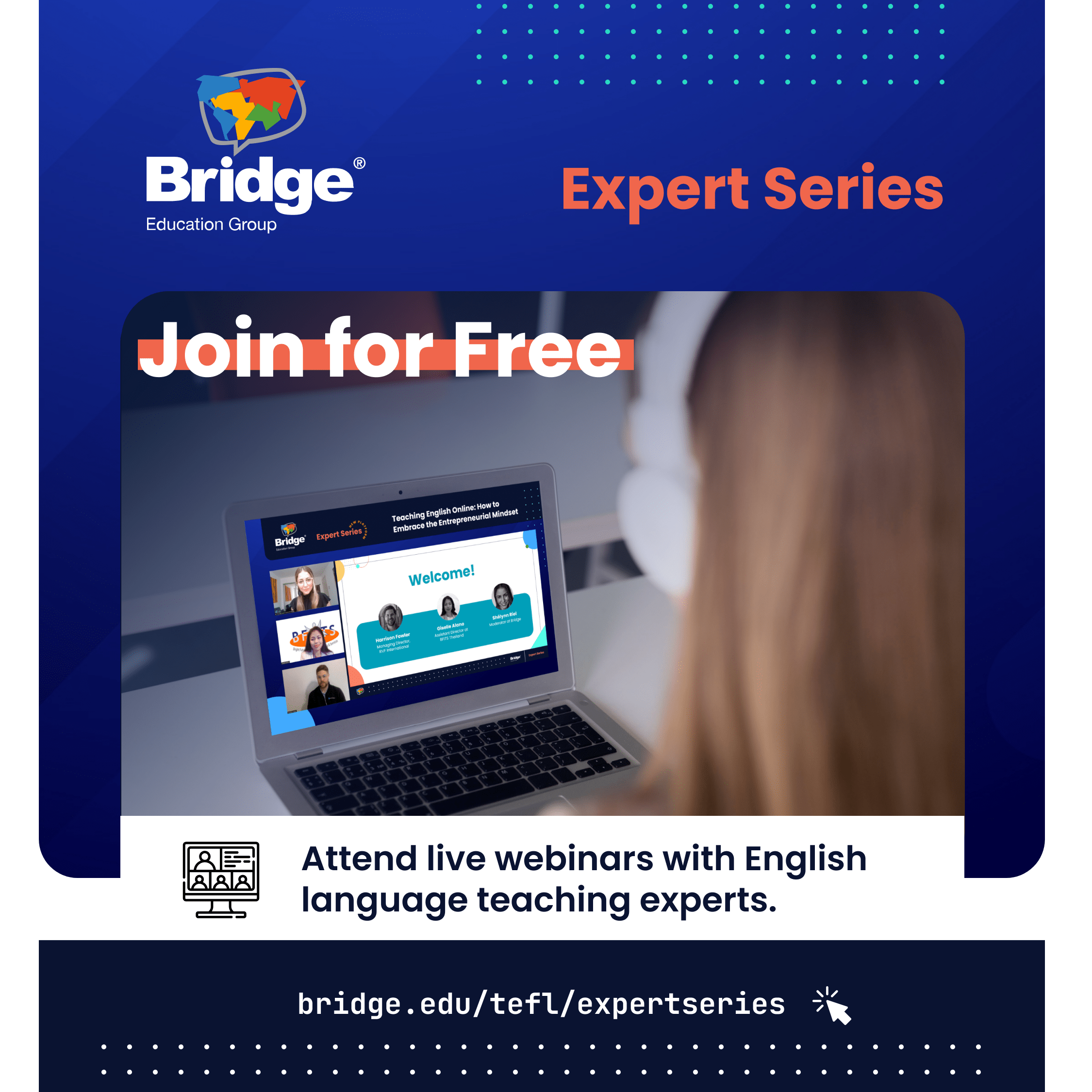From Morocco to Slovenia, and through Bridge’s virtual classrooms as a Global Teacher, Fatima-Zahra LGRMZ has crafted a teaching approach that is as practical as it is creative. With a background in engineering and certifications in CELTA, TEFL/TESOL, and Business English, Fatima blends structure with flexibility – always prioritizing real communication and learner confidence.
Her approach centers on active participation and helping learners enjoy the process. To achieve this, she incorporates games and interactive activities into her online English classes for adult professionals, aligning them with real workplace contexts.
Games in Adult English Classes: How They Boost Engagement
“My teaching style is student-centered, structured but flexible, and focused on practical communication,” explains Fatima. “I always aim to create a supportive environment where learners feel confident to speak, take risks, and enjoy the learning process. I like to bring games into my classes to boost energy, review content, break the ice, or even introduce new language in an interactive way.”
Since she teaches Business English to adults online, she chooses games that are easy to implement virtually and still serve a clear learning goal. “Some of my go-tos include vocabulary quizzes using Kahoot or Quizizz, ‘Talk for X Minutes’ challenges where students speak on a specific topic without pausing, and role plays that simulate real-life professional situations like meetings, negotiations, or networking,” she says. “These games are quick to set up and offer both language practice and professional relevance, which keeps my learners engaged and motivated.”
The impact is visible right away. “Participation usually increases right away! Games help learners loosen up and forget the pressure of ‘getting it right.’ They also de-stress learners, which allows them to open up more and engage actively. I’ve noticed that students begin to collaborate, discuss, correct each other and justify their answers, which leads to deeper understanding. Sometimes, a point that wasn’t fully understood during the lesson becomes clearer during the game because learners approach it in a different way.”
Motivating English Classes That Build Connection
One class that Fatima remembers fondly involved a group of four coworkers from the same company but from different departments. They didn’t know each other well and were hesitant to speak. “Instead of starting with standard self-introductions, I used the game ‘Two Truths and a Lie’. It sparked laughter and curiosity, and they learned surprising things about one another. After that, we did ‘Five Things in Common’, which led them to discover shared hobbies and experiences. That completely shifted the energy in the room—they no longer saw each other as strangers from different departments, but as part of the same learning community.”
Tips for Other Teachers and Why Games Work
For other teachers who want to introduce games into their language classes, Fatima is clear: “Absolutely go for it! Try to fit them naturally into your lessons. You can use Kahoot or Quizlet Live to review vocabulary or grammar, or role plays to build speaking confidence in realistic contexts. You can also use games like ‘Guess the Word’ with on-screen sticky notes, or ‘Would You Rather’ to spark discussions and practice conditional forms. Keep it simple and interactive, and most importantly, observe what resonates with your students and build from there.”
Why do games work so well—even for adults? “Just because learners are adults doesn’t mean they don’t enjoy a good game. In fact, they often appreciate it even more because it breaks the routine of their workday. Games bring an element of surprise and fun, making learning feel less like an extra task and more like a meaningful experience. They also help adults reframe language learning as something enjoyable and achievable, rather than intimidating or overly academic.”
A Global Teacher Who Makes a Difference
Fatima’s approach reflects Bridge’s teacher-first philosophy: our teachers don’t just teach English—they create learning experiences that inspire, connect, and make a lasting impact.
Her story shows how a participatory, human-centered methodology can elevate corporate English training programs. When learners enjoy the process, results become more visible and sustainable.
Want to see how our Global Teachers work live? Request a demo here.










